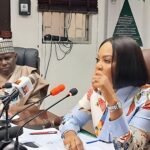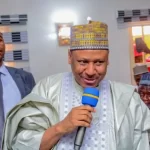President Bola Tinubu’s administration is making waves with its ambitious Renewed Hope Agenda, aiming to transform Nigeria across various sectors.
Here’s how:
A wage award of N35,000 monthly for civil servants for six months and a tripartite committee to work out a new minimum wage for workers show the government’s commitment to workers’ welfare. An Infrastructure Support Fund for states and a N100 billion CNG bus rollout programme are set to boost infrastructure and transportation. The government has also commenced a monthly Conditional Cash Transfer of N25,000 to 15 million vulnerable households for three months, providing immediate relief to the most in need.
For businesses, the administration offers N50 billion in Conditional Grants to one million nano-businesses and a N75 billion fund to support manufacturing enterprises. Launching the National Philanthropy Office (NPO) aims to mobilize $200 million in private investments. Additionally, a N5 billion single-digit interest fund in partnership with Sterling Bank through the Small and Medium Enterprises Development Agency of Nigeria (SMEDAN) supports SMEs.
On the international front, Tinubu has attracted over $30 billion in foreign direct investment, showcasing Nigeria’s vast opportunities. Strengthening national security has also been a priority, with significant investments yielding the release of over 4,600 hostages, neutralization of over 9,300 hostiles, and arrest of over 7,000 criminals. The Nigerian Air Force has enhanced its capabilities with five new aircraft, and a 2,200-member Mines Marshal Corps has been established to secure mining sites.
Boosting agriculture and food security, Tinubu declared a state of emergency on food security, launched the National Agricultural Development Fund with N100 billion, and introduced the Dry Season Farming Initiative on 500,000 hectares of farmland. The administration is also fostering partnerships to supply tractors and provide low-interest loans to farmers.
Unlocking energy and natural resources is critical, with crude oil production rising to 1.6 million barrels per day and LNG production increasing to 70%. The completion of the Port Harcourt refinery rehabilitation and payment of $1.3 billion in debts to gas firms ensure a sustained gas supply. The CNG Initiative aims to reduce production and transportation costs, attracting over $50 million in private investment.
The solid minerals sector is being revitalized with a Seven Point Agenda, including creating the Nigerian Solid Minerals Corporation and forming joint ventures with mining multinationals. Infrastructure and transportation investments include the operationalization of the Port Harcourt to Aba rail line and the construction of the Lagos-Calabar Super Highway.
In education and health, the administration plans to expand primary health centers and has allocated N50 billion to the National Primary Healthcare Development Agency. The Student Loans (Access to Higher Education) Act 2024 supports 1.2 million students, and significant funds have been allocated for research and healthcare infrastructure.
Youth empowerment is a focus, with initiatives like the Three Million Technical Talent Initiative and the Investment in Digital and Creative Enterprise (iDICE) Programme. The National Job Centre and Skill-UP Artisans Programme aim to create millions of jobs and empower youth with digital skills. The National Talent Programme (NATEP) and Outsource to Nigeria Initiative (OTNI) further support job creation and skills development.
Improved governance is key, with the MOBILIZER app for citizen engagement and the Citizens’ Delivery Tracker App ensuring transparency. The administration is also working on cutting the cost of governance and restoring public trust.
Tinubu’s anti-corruption policy includes reinforcing institutions like the EFCC and ICPC, enhancing judiciary independence, and pursuing high-profile corruption cases. Transforming Nigerian sports, the administration has allocated N31.239 billion for 2024, renovated sports facilities, and promoted private sector investment.
Gender inclusion is also prioritized, with significant investments in education, healthcare, and economic opportunities for women. Economic empowerment programmes and support for women with disabilities highlight the administration’s commitment to gender equality.
In conclusion, President Tinubu’s Renewed Hope Agenda is a comprehensive strategy aimed at transforming Nigeria, ensuring sustainable development, and improving the quality of life for all citizens. Through strategic investments, youth empowerment, and improved governance, the administration is laying the foundation for a brighter future.






